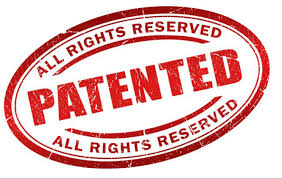
Software Patenting
SOFTWARE PATETNTING UNDER INDIAN LAW
Software IP, sometimes referred to as software intellectual property, is computer code or programs that are legally shielded against theft, unlawful use, and duplication.
In its widest sense, software is a collection of programs or instructions that teach a computer on how to carry out particular activities. With the advent of the digital age, every task or transaction was made simpler and easier to access all the necessary data and communication channels.
THE TERMS OF software patenting in India ARE GOVERNED BY THE Patents Act of 1970.
Developments and concepts for software may be protected under patent law. A patent that safeguards computer software is known as a software patent. Software that is embedded into a mechanical device, runs on a mobile device, or is a stand-alone computer application can all be covered by software patents. Software must fulfill the same standards as any other kind of innovation in order to be eligible for patent protection.
In order to secure a software development patent, it is necessary to prove the following key elements:
The invention needs to meet a number of formal and substantive requirements in addition to the following ones:
- it needs to be novel,
- involve an inventive step that makes it non-obvious,
- involve patentable subject matter, and
- Meet certain requirements for disclosure in the patent application.
Furthermore, the Patents Act of 1970 designates computer programs as non-patentable subject matter, therefore for software to be eligible for an invention patent, it must meet certain requirements:
This invention involves a computer and software that is needed to produce a technical effect; B. The invention goes beyond the software's capability to produce a technical effect because it incorporates an apparent element that communicates with the software to create a collection of tangible elements and software.
However, "a statistical or business procedure, a software program per se, or formulas" is not creations and is not patentable, according to Section 3(k) of the Patents Act of 1970.
The Patents Act, 1970, specifically states in Section 3(k) that computer programs, mathematical techniques, and business procedures in general are not patentable in India. Nevertheless, this prohibition is restricted to software in its simplest form and does not prevent software-related innovations with a technical impact from being patented.
In the case of OPENTV INC. v. THE CONTROLLER OF PATENTS AND DESIGNS AND ANR., the Delhi High Court recently handed down a historic ruling.
During its deliberations, the Delhi High Court closely examined pertinent precedents and the terms of the Patents Act. The court stated that while computer programs as a whole are excluded from patentability under Section 3(k), this exclusion is not absolute. It was decided that an invention can be eligible for patent protection if it exhibits a technical effect or resolves a technical issue rather than falling under the definition of a computer program.
The court determined that OPENTV INC.'s innovation was a patentable invention with technical components and a technical effect rather than a computer program in the traditional sense.
Conclusion:
In summary, software contributes significantly to the development of our civilization. The protection and advancement of software creators' rights through improved patent enforcement is becoming more and more important. The Indian courts have been quite receptive to the notion of patenting software. Even when implemented through software, innovations that entail a unique and non-obvious technological solution or an advance in a technical field have been granted patents by the Indian Patent Office and Indian courts.






comments